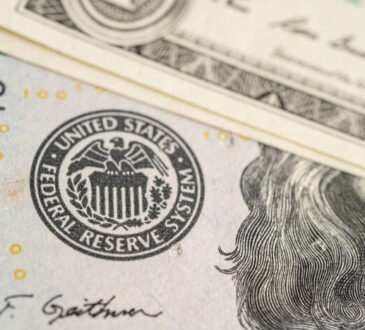
The Bank of Japan did not give in to market pressure and kept its dovish guidance intact. However, the wording on the economic and inflation outlook paves the way for a hike in the second quarter in our view. The should revert to being driven mostly by US rates after taking a hit today. Elsewhere, Fedspeak will remain in focus along with some US data
USD: Mixed Fedspeak
The has started the week modestly offered, with Scandinavian currencies performing well and the yen dropping after this morning’s Bank of Japan announcement (more in the JPY section below).
The US calendar was empty yesterday, so the spotlight was on Fedspeak. Loretta Mester said that the markets are “a little bit ahead” on rate cuts, and Mary Daly said that her outlook for rate cuts is very close to the median Dot Plot (75bp of easing next year). Interestingly, Daly said that policy would still be restrictive if three cuts were delivered next year, which would probably imply greater room for easing if the economic outlook deteriorates. Chicago Fed President Austan Goolsbee said he is confused by the market reaction to the Dot Plot, but remarks from Daly and Mester instead seemed to endorse investors’ bullish response.
We’ll keep monitoring Fed speakers today, with Thomas Barkin and Raphael Bostic (the latter swings more to the dovish side) set to deliver remarks. However, the focus will also be on US data, with housing starts set to have declined along with building permits in November. October TIC data is also due today.
Tomorrow’s consumer confidence and Friday’s PCE and personal income numbers will be the last bits of data that can move the market before Christmas. Today, FX markets may stay quiet, and the general mood on the dollar could be modestly bearish unless we hear some more convincing pushback on rate cuts by Fed officials.
EUR: ECB Versus Data
Unlike officials at the Federal Reserve, European Central Bank members have managed to deliver a more coordinated pushback on rate cuts, both at last week’s policy meeting and in post-meeting communication. Governing Council member Peter Kazimir said the risks of premature cuts are bigger than those of keeping monetary tight for too long, and fellow hawk Pierre Wunsch highlighted how rate cuts cannot be discussed until wages move to a level that is compatible with the inflation target.
Despite that, it still appears quite hard to dissuade the market from its conviction that rates will start to be cut in April. Data remains the missing link for a more material repricing in ECB rate expectations, and another miss by the Ifo yesterday in Germany suggests we are not at peak pessimism yet on the eurozone economic outlook.
can trade above 1.10 during the holiday period as the dollar enters a seasonally soft period, but rate differentials are still too depressed to argue for a sustainable rally above 1.10 just yet.
CAD: Macklem Turns Dovish
The is lagging other pro-cyclical currencies at the start of this week after Bank of Canada Governor Tiff Macklem said in a TV interview yesterday that he expects rates to be cut next year. This is a surprise statement by Macklem, who only two weeks ago reiterated the hawkish bias in the BoC policy statement. Offering a timeline for rate cuts appears inconsistent with the BoC’s claim that it “remains prepared to raise the policy rate further if needed” and likely validates the market’s pricing for 100bp of easing next year – despite Macklem’s caveats on the disinflation progress.
Despite our view of a dollar decline and outperformance of pro-cyclical currencies next year, we expect the Canadian dollar to underperform other commodity currencies as the BoC cuts rates aggressively (we estimate 150bp in 2024) on a grim economic outlook and as the loonie suffers from its correlation with US economic data.
JPY: Ueda Disappoints Markets, But April Hike On The Table
The Bank of Japan kept rates unchanged today as widely expected, but disappointed the market’s hawkish expectations. The Bank kept its dovish guidance unchanged (“take additional monetary easing steps without hesitation if needed”) which forced markets to abandon speculation of a rate hike in January.
The yen took a hit, falling almost by 1.0% against the dollar after the announcement and press conference by Governor Ueda, but we identified a few changes in the Bank’s assessment of the economic outlook that likely endorse the market’s lingering expectations for a hike in April. In particular, the BoJ noted that private consumption has continued to increase modestly, that inflation is likely to be above 2% throughout the 2024 fiscal year and that underlying inflation is likely to increase. Those statements are aimed at paving the way for policy normalization in 2024, in our view. We expect the yield curve control to be scrapped in January and a hike to be delivered in April.
From an FX perspective, the yen may simply revert to trading primarily on external factors (US rates in particular) after the BoJ ignored market pressure and likely signaled the path to normalization should be a gradual one. We remain bearish on USD/JPY in 2024, as the oversold yen can still benefit from the end of negative rates in Japan and we see the Fed cutting rates by 150bp, but the pace of depreciation in the pair will be gradual in the near term, and we only see a decisive break below 140 in 2Q24.
Disclaimer: This publication has been prepared by ING solely for information purposes irrespective of a particular user’s means, financial situation or investment objectives. The information does not constitute investment recommendation, and nor is it investment, legal or tax advice or an offer or solicitation to purchase or sell any financial instrument. Read more



